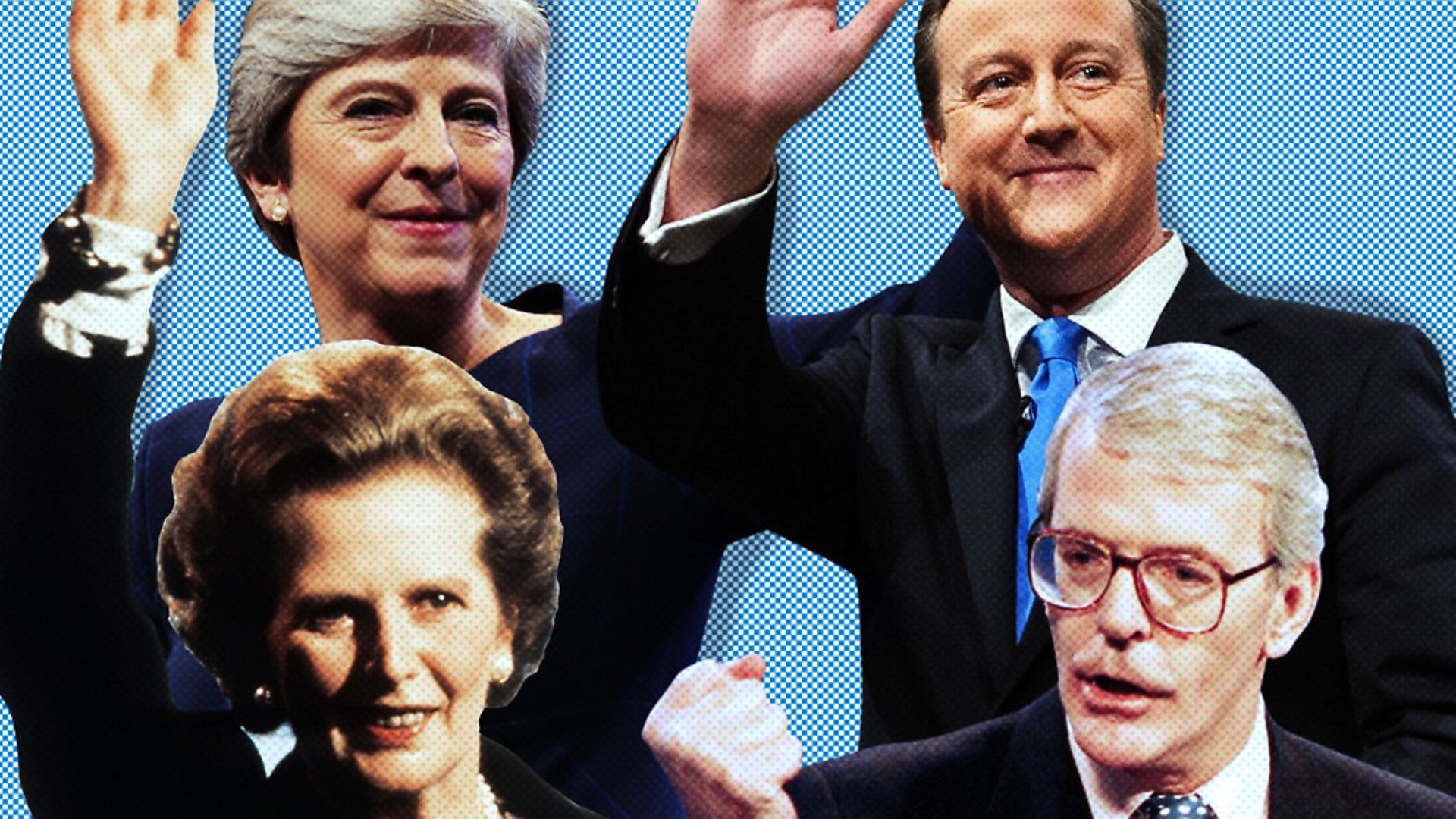
Splits in the cabinet over Brexit are simply the latest manifestations of a divide that has paralysed the Conservatives – and the country – for decades. STEVE RICHARDS reports
Here we go again. A Conservative Prime Minister seeks to persuade a divided cabinet and a split parliamentary party that her policy in relation to the EU is the most feasible way forward. Once again the national interest plays second fiddle to getting a policy through a turbulent Conservative party.
This time the focus is on Theresa May’s support for a ‘customs partnership’. The foreign secretary describes the proposal as ‘crazy’. Other ministerial dissenters brief with furious disdain. Desperate to win the latest internal battle, Number Ten backs another cabinet minister, Greg Clark, as he insists May’s policy must be implemented or else thousands of jobs would be lost.
For an onlooker from Mars every element of this sequence would be astonishing. Is the UK government trying to decide its policy on future trade with the EU more than a year after May triggered Article 50 and with only a few months before a final Brexit deal is meant to be agreed? Given how late they are seeking agreement on a policy of volcanic significance, how could there possibly still be further delay and indecision? How could her Brexit ministers and a newly-appointed home secretary defy their Prime Minister with such resolute gusto? To those of us not living on Mars we do not even need to ask the questions. We are used to this, a Conservative leadership in a state of divided paralysis over Europe.
Yet the surprise is that we are not surprised. In relation to Donald Trump there is much talk about the dangers of ‘normalisation’. We become so used to Trump’s bizarre behaviour that we come to accept it. The Conservatives have been tearing themselves apart over Europe for so long that the danger of normalisation also applies to the UK. What should be shocking triggers few waves. We have been here so may times before. Margaret Thatcher falling over Europe. John Major in torment over Europe. The normally untroubled David Cameron in contorted agonies over Europe. On it goes.
The question of how the Conservatives metamorphosed from a pro-European pragmatic party into one that engages in a never-ending ideological battle over Europe is one that will fascinate historians for centuries to come. In order that we do not become wholly immune to the freakish metamorphosis we cannot wait for the historians. We need to understand the causes and the origins now. How is it that the UK Conservatives became the only mainstream party in the EU to steer a path to seismic withdrawal? When did the cracks appear and how did the cracks become chasms? The questions matter now because the Conservatives tend to win general elections. One way or another they have been elected to power after the last three elections, having ruled for 18 years from 1979.
Margaret Thatcher’s Bruges speech, delivered nine years after her first election win in 1979, is widely cited as the key moment when the Conservative party changed. As was often the case with Thatcher’s dealings with Europe the reality was slightly different. For sure she was unusually provocative: ‘We have not successfully rolled back the frontiers of the state in Britain, only to see them re-imposed at a European level with a European super-state exercising a new dominance from Brussels.’
Such hostile words enthused the growing number of small-state Thatcherites in her party. A Bruges Group was formed that became a focus for heightened euroscepticism in the Conservative party. But the speech also made clear that: ‘Britain does not dream of some cosy, isolated existence on the fringes of the European Community. Our destiny is in Europe, as part of the Community.’
Those words make her sound like an ardent Remainer. Some might call this a new third way from Thatcher: attacks on the EU while asserting the UK’s continuing membership. There is not a single public sentence spoken by Thatcher while Prime Minister that suggested she thought it was in the UK’s interests to leave the EU. She signed every Treaty. She pioneered the single market that hardline Brexiteers now want to leave.
But the specifics do not matter. In her ideological zeal she created a new breed of Conservative MP. In one of the many ironic twists in this saga, these new Tory MPs were in some respects closer to the politics of Labour’s Tony Benn than they were to their party’s past leaders. The coming together of Benn’s ideas and a part of the Conservative party is bizarre but significant. Benn was a passionate believer in the sovereignty of the UK parliament and a fervent opponent of the EU on this basis.
In the 1990s, during the parliamentary battles over the Maastricht Treaty, Thatcher sat on the backbenches nodding ostentatiously when Benn spoke. Other Conservatives nodded with her. Subsequent leaders found that the loyalty from Conservative MPs was no longer automatic. With Thatcher’s encouragement they became loyal to ideas and convictions instead. Like the left-wing Benn, some insisted they were loyal to their local parties and represented them rather than the leader.
They became rebels and post-Thatcher the Maastricht Treaty was their focus. In May 1992 there was an overlooked but important stepping stone to aid the still embryonic insurrectionists. The important assistance came inadvertently from Denmark where the government lost a referendum on the Maastricht Treaty. As a BBC political correspondent I had a lunch on the day of the Danish result with John Redwood, then a minister in Major’s newly-elected government. The restaurant was in a basement. Not normally exuberant, Redwood danced down the steps to the table as if he were a guest on a television chat show. He suggested we raise a glass to the Danish voters. This was a minister in a government that was about to bring forward legislation to implement the Maastricht Treaty.
The Tory eurosceptics made Major’s life a form of hell. They demanded a pledge that a referendum be held before the UK joined the euro. Major agreed. The eurosceptics expressed their vision of an enlarged EU with the UK outside the euro. Their vision was realised. With each victory they intensified their opposition. In raging against Europe they had become unyielding rebels.
The party had changed and the most vivid early public example of this was the Conservative party conference in October 1992. Conservative conferences had been gatherings of loyal, elderly activists paying homage to their leader and any speaker from the front bench. The 1992 conference, held weeks after the UK’s departure from the ERM, was much closer to rowdy Labour conferences in the late 1970s and early 1980s. Fringe meetings were angry and highly charged. On the conference floor the former cabinet minister, Norman Tebbit, delivered a mesmeric speech worthy of Shakespeare’s Mark Anthony, one that appeared to be supportive of Major while stabbing him in the front. Speaking of the ERM crisis he defended the then chancellor, Norman Lamont: ‘He wasn’t Chancellor when we joined the ERM’. Instead Major had been at the Treasury.
Tebbit went on to prompt pantomime-style responses from conference, asking them whether they wanted a single currency, and Brussels meddling in immigration controls, foreign affairs, industrial policy, education and defence – each question greeted with a chorus of ‘No’. This was a savage speech and Major looked pale as he sat on the platform listening. He knew what the insurrectionary words would portend.
But at no point in the speech did Tebbit raise the possibility of leaving the EU. The rise of UKIP was the additional ingredient. David Cameron, a leader who never took on his party over Europe, felt more insecure as a Prime Minister than he showed. In my recent Radio 4 series The Cameron Years his former press secretary Sir Craig Oliver says that Cameron genuinely feared up to 20 Conservative MPs defecting to UKIP, switches that would encourage potential Tory voters to follow suit. It was the fleeting rise of UKIP that turned a significant section of an already transformed Conservative party into one that supported leaving the EU.
The eternal war within the Conservative party will not end. The cliché that the war is over because the euroscpetics have won is wrong. Brexit has created another divide between those evangelical about the UK going it alone and those that know such visions are fantastical. Every now and again May indicates she is in the latter group. There are some like John Major who is urgently aware from his experience that either way the UK is heading for the cliff’s edge.
Cameron called the 2016 referendum for reasons of party management alone. Theresa May might have no choice in the end but to welcome another given the drastic examples of her cabinet being impossible to manage. Whatever happens next the one constant factor will be a changed Conservative party battling it out over Europe and a tormented leader struggling to keep the show on the road.
Steve Richards presents his one-man show Rock N Roll Politics at Kings Place on May 21. Brexit will be the theme. The paperback of his book Rise of the Outsiders is published this month.










